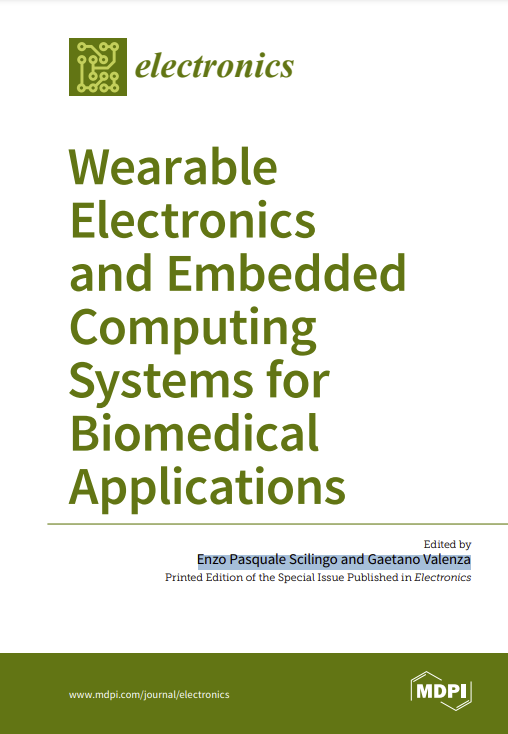Wearable Electronics and Embedded Computing Systems for Biomedical Applications
Editorial: MDPI
Licencia: Creative Commons (by-nc-nd)
Autor(es): Pasquale, Enzo y Valenza, Gaetano; [et al.]
Wearable electronics and embedded computing systems have been gaining a great deal of interest over the last two decades in research and commercial fields, with a special focus on biomedical applications. The key benefits introduced by these systems include their small size, lightweight, low-power consumption, and, of course, wearability. Major human-centered applications are related to medicine enabling outpatient care and enhancing the quality of life for chronic disease patients, maybe preventing unnecessary hospitalizations. These technological avenues can indeed be cost effective and provide the doctors with more accurate and reliable data.
Exemplary engineering contribution has been focusing on developing innovative sensing platforms adaptable to different environments and user needs, smart textile technology, miniaturized electronics and sensors, energy harvesting, wireless body area networks, and so on. This has provided the possibility of gathering information in several scenarios, such as during daily activities or sleep, during specific tasks, at home, in the lab, and in the clinic, in the form of physiological signals.
We invite researchers to submit cutting-edge research articles, as well as reviews and tutorials, describing and assessing wearable devices, or proposing novel wearable sensors, computational efficient algorithms for physiological signal processing through embedded computing, collection of environmental/behavioral/psychological data, data fusion, detection and quantification of symptoms, decision support for the medical doctors, and communication of the patient with the doctor.
Potential topics include, but are not limited to:
Innovative wearable sensing platforms and body area networks
Smart textile technology
Wearable systems in healthcare
Continuous sleep monitor and evaluation
Embedded signal processing
Computationally efficient nonlinear digital signal processing
Data fusion for embedded computing systems
Smart telemonitoring systems
Heart rate monitoring and related embedded computing
Wearable biomedical electronics, computer and information technology
Wireless and mobile communications in biomedical systems
[Basel: 2017]
Compartir:
Una vez que el usuario haya visto al menos un documento, este fragmento será visible.


